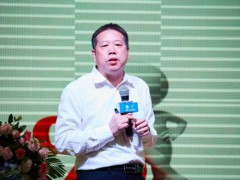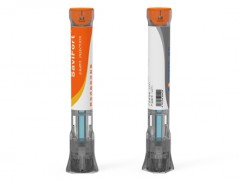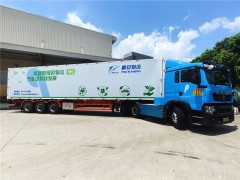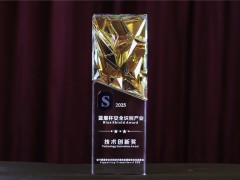據原油新聞6月1日消息稱,財經網站Calcalist周一報道,一個負責制定天然氣政策的部際委員會建議,鑒于以色列國內天然氣消費量的減少,以色列應增加對鄰國的燃料出口。
Calcalist稱,以色列的天然氣田所有者獲準出口每年總燃料產量的40%,約8300億立方米。委員會說,建議的改變是將出口配額增加到全年總產量的52%。
該委員會還表示,如果在以色列領海內發現了更多的天然氣田,根本不應該強加出口配額。
2月,埃及石油和礦產資源部長Tarek el-Molla訪問以色列,這是埃及政府高級官員五年來首次公開訪問。Calcalist 說,作為訪問的一部分,建立了一條從利維坦油井到埃及液化天然氣 (LNG) 工廠的水下管道的可能性被提出,以促進對歐洲的出口。
委員會認為,放寬配額將導致以色列與埃及和約旦簽訂更多合同,并將加強以色列與其阿拉伯鄰國之間的政治聯系,進一步確立以色列作為地區能源力量的地位。
該委員會由能源部、財政部、司法部、外交部和環境部、反壟斷監管機構、國家經濟委員會和以色列國家安全委員會的成員組成。Calcalist稱,該委員會將在未來幾天公布一份征求公眾意見的提案草案,之后將提交一份最終報告給政府批準。
今年10月,以色列政府設定了一個目標,即到2030年,以色列30%的電力生產來自可再生能源,這將降低當地的天然氣消耗。該委員會認為,這將使更多的燃料出口。
利維坦油田是以色列最大的油田,于2019年12月31日開始開采,緊隨其后的是附近的第二大油田塔馬爾,其天然氣儲量約為10萬億立方英尺(tcf),是利維坦的一半。自 2017 年 1 月以來,以色列一直從塔馬爾油田向約旦出口天然氣,利維坦油田于 2020 年 1 月開始向埃及出口。 利維坦對經濟貢獻更大、更重要。
這兩個油田,連同較小的卡里什油田和塔寧油田,被視為這個傳統上自然資源匱乏的國家的財富。它們提供了來自四個不同油田的當地生產的穩定能源,從而帶來了更安全的供應,足以滿足以色列幾十年的所有電力需求,并隨著出口,為地區天然氣外交鋪平了道路。
曹海斌 摘譯自 原油新聞
原文如下:
Israel Reportedly Set to Ease Export Quotas of Natural Gas
An inter-ministerial committee in charge of setting out natural gas policies has recommended that Israel increase the amount of fuel it exports to neighboring countries in light of a reduction of local consumption, the Calcalist financial website reported on Monday.
The owners of Israel’s natural gas fields are allowed to export a total of 40 percent of fuel produced per year, some 830 billion cubic meters (BCM), Calcalist said. The recommended change is to increase the export quota to 52% of total annual production, the committee said.
The committee also said that if additional gas fields are found within Israel’s territorial waters, there should be no export quotas imposed at all.
In February, Egypt’s Minister for Petroleum and Mineral Resources Tarek el-Molla visited Israel, the first public visit by a senior Egyptian government official in five years. As part of the visit, the possibility of setting up an underwater pipeline from the Leviathan well to Egypt-based liquified natural gas (LNG) plants was raised, to boost exports to Europe, Calcalist said.
The easing of the quota will lead to additional contracts with Egypt and Jordan, the committee assessed, and will strengthen political ties between Israel and its Arab neighbors, further establishing Israel as a regional energy force.
The committee is made up of members of the Energy, Finance, Justice, Foreign and Environment ministries, the antitrust regulator, the National Economic Council and the Israel National Security Council. In the coming days the committee will publish a draft proposal for public comments, after which a final report will be brought for government approval, Calcalist said.
In October, the Israeli government set an aim of having 30 percent of Israel’s electricity production come from renewable sources by 2030, which will lead to lower natural gas consumption locally. This will enable greater amounts of the fuel to be exported, the committee believes.
The Leviathan field, the nation’s largest, started pumping on December 31, 2019, followed in 2013 by the nearby Tamar, the second largest, which holds some 10 trillion cubic feet (tcf) of natural gas, half of the amount held in Leviathan. Israel has been exporting gas from the Tamar field to Jordan since January 2017, and the Leviathan field started exports to Egypt in January 2020. The Leviathan deals are considered to be bigger and more significant for the economy.
These two fields, along with the smaller Karish and Tanin fields, are seen as a bonanza for a nation that has traditionally been starved of natural resources. They provide a stable source of locally produced energy from four different fields, leading to a more secure supply that is enough to feed all of Israel’s electricity needs for decades, and with the option of exports, pave the way for regional natural gas diplomacy.?
免責聲明:本網轉載自其它媒體的文章,目的在于弘揚石化精神,傳遞更多石化信息,并不代表本網贊同其觀點和對其真實性負責,在此我們謹向原作者和原媒體致以敬意。如果您認為本站文章侵犯了您的版權,請與我們聯系,我們將第一時間刪除。







